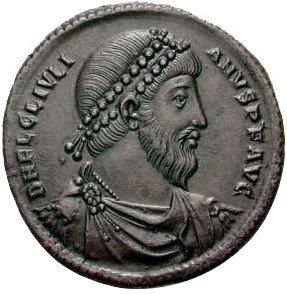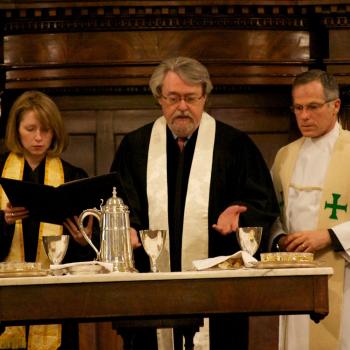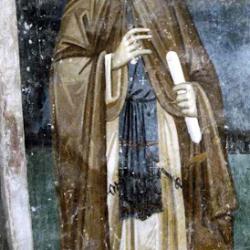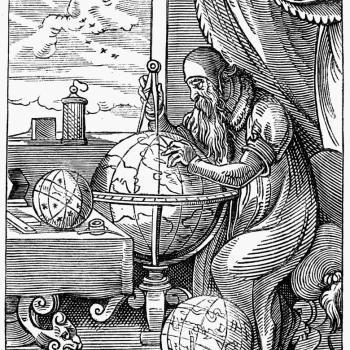It was on this day, the 3rd of November, in the year 361 of our common era that the Emperor Constantius II died. In his will he name his cousin Julian his sole “legitimate” heir.
A golden child of the Constantinian dynasty, and ultimately that last child of the dynasty, Julian had previously served as Caesar of the western provinces. His own army had proclaimed him Augustus 360, and with the death of Constantius and with that will, Julian was acknowledged universally. He would rule for a mere two years.
Most notably Julian was the last non-Christian emperor. The Christian tide had already probably ebbed past any subsiding, but Julian gave it his best efforts. And his best was pretty impressive. While raised an Arian Christian, he converted himself to a high version of the ancient pagan traditions.
The Wikipedia article on him outlines his beliefs.
“Julian’s personal religion was both pagan and philosophical; he viewed the traditional myths as allegories, in which the ancient gods were aspects of a philosophical divinity. The chief surviving sources are his works To King Helios and To the Mother of the Gods, which were written as panegyrics, not theological treatises.
“While there are clear resemblances to other forms of Late Antique religion, it is controversial as to which variety it is most similar. He learned theurgy from Maximus of Ephesus, a student of Iamblichus; his system bears some resemblance to the Neoplatonism of Plotinus; Polymnia Athanassiadi has brought new attention to his relations with Mithraism, although whether he was initiated into it remains debatable; and certain aspects of his thought (such as his reorganization of paganism under High Priests, and his fundamental monotheism) may show Christian influence. Some of these potential sources have not come down to us, and all of them influenced each other, which adds to the difficulties.
 “According to one theory (that of G.W. Bowersock in particular), Julian’s paganism was highly eccentric and atypical because it was heavily influenced by an esoteric approach to Platonic philosophy sometimes identified as theurgy and also Neoplatonism. Others (Rowland Smith, in particular) have argued that Julian’s philosophical perspective was nothing unusual for a “cultured” pagan of his time, and, at any rate, that Julian’s paganism was not limited to philosophy alone, and that he was deeply devoted to the same gods and goddesses as other pagans of his day.”
“According to one theory (that of G.W. Bowersock in particular), Julian’s paganism was highly eccentric and atypical because it was heavily influenced by an esoteric approach to Platonic philosophy sometimes identified as theurgy and also Neoplatonism. Others (Rowland Smith, in particular) have argued that Julian’s philosophical perspective was nothing unusual for a “cultured” pagan of his time, and, at any rate, that Julian’s paganism was not limited to philosophy alone, and that he was deeply devoted to the same gods and goddesses as other pagans of his day.”
As emperor Julian repudiated various benefits that had been bestowed upon Christian bishops, including generous stipends and the right of consultation on matters of state. He declared that teachers of the pagan classics be pagans, which was seen as a major move to marginalize the Christian hegemony over education. He didn’t outlaw the Christian church, but instead in 362 through an edict he legalized everyone’s freedom of religious conscience. He supported the Jewish community, and undertook a project to rebuild the Temple in Jerusalem, which like many other of his projects ended with his premature death.
Julian established a state pagan religion, which he hoped would not only rival but supplant the now enormously powerful Christian church. To this effect he tried to adapt the most successful aspects of the Christian organization to his own religious community. He appointed high priests who were marked out for their deep learning and high moral character. While they were accountable to him as pontifex maximus, they supervised the many priests who served the community. He restored and endowed numerous temples.
Something very interesting was taking shape.
And it all ended abruptly with his death in 363.
I find it a sadness. And one of those moments in history, where it is hard not to think, what if?
Of such stuff as dreams are made on.













